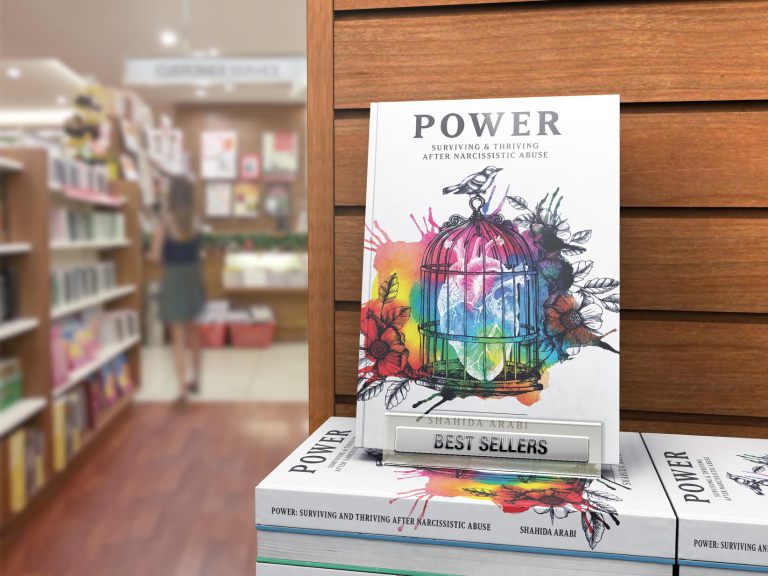Anyone who’s ever been involved with a narcissistic partner or had friends or family members with narcissistic traits also knows the contrasting bliss of having a joyful holiday season free of their toxic behaviors. There is nothing happier, more peaceful, and calmer than having a holiday season free of crazymaking arguments, sabotage of special parties or events, and no longer having to worry about managing the moods of someone who can’t look beyond their lack of empathy and Grinch-like attitudes to share in the joy of the festivities. Here are six proven ways you can have a more carefree holiday season without toxic people.
Take an inventory.
When planning out the holiday season, think about your past holidays. Who did you enjoy most being around and what did you love doing? (e.g. I loved being with my best friend; I loved the New Year’s Eve party we attended). What did you wish you had done less of? (i.e. less time spent shopping, less time spent arguing with my ex-partner, more time spending time with family and friends). Then brainstorm how you can do more of what you love and spend more time with those you actually feel nurtured by, rather than trying to please toxic people during these months (e.g. have catering or deliveries arranged to avoid excessive shopping and to have more time to relax; have presents bought ahead of time so you can focus less on the hectic to-do lists and more on peaceful holiday activities like decorating or baking; saying no to invitations to events that include toxic people; spending less time on social media to avoid potential triggers). Planning ahead can give you a sense of control and agency over your holiday schedule and remind you that you do have options for how you allocate your time. You are allowed to be selective about the events you attend, the people you surround yourself with and the activities you engage in.
Low contact or no contact.
Every person usually has someone in their life they know is too toxic or narcissistic to be around, especially during the holidays. If you’ve had holidays in the past sabotaged or deterred by such people, it is time to consider going No Contact or at the very least Low Contact with them. All circumstances differ so it’s important to consider your own. Those who currently live with a narcissistic partner and are still freeing themselves may not be able to have the luxury of avoiding such a person completely, but there could be ways to set boundaries and limits during the holiday season that give you a break (e.g. going away for a period of time to visit family or friends, planning a brief trip elsewhere under the guise of a work obligation). If you’re seeing friends or family members who you’re not too comfortable being around for long periods of time, set “time limits” to such visits and always arrange your own hotel and transportation so you can always leave early if you wish. Avoid texting or having phone calls with those who trigger your stress and anxiety during this time.
Cut down on fear, obligation, and guilt.
Holidays come with a sense of obligation: you feel obligated to attend parties and social gatherings, exchange gifts, pass time both with people you love and people you tolerate. If you’ve spent most of your holidays in the past feeling guilty and compelled to protect the feelings of others, it’s time to start prioritizing your needs. Ask yourself: why does everyone else get to have a relaxing holiday but you? Even the narcissists that have been in your life have gotten to deflate your joy and enjoy their holidays by being the Grinch to your Christmas celebrations in the past – so why shouldn’t you finally have a holiday season thinking about yourself? Consider your own sense of peace, joy, and pleasure in every decision this holiday season. Once you get into the habit of planning the holiday season thinking of your own needs, you’ll find that is a far more joyful time.
Make alternative plans that do not involve toxic people.
It’s wonderful to enjoy traditional holiday plans, but don’t forget to also add in traditions that personally excite you. What do you love to do during the holidays, even if others don’t? How do you like to spend your time? Do more of those activities this holiday season. If you’re an introvert, you will likely need some time away from people as well as with them. Schedule in some time solo or with a trusted friend if you’re planning to attend other holiday gatherings to have time to yourself doing your favorite activity (e.g. relaxing by the fireplace, scheduling a spa day, going to a live music event, exploring holiday-themed restaurants). That way, you get to incorporate what is special and uniquely joyful to you during the holiday season.
Have a “handy” excuse.
It’s important to have a handy excuse whenever potentially dealing with toxic people, as they can sneak their way into your life even when you’re doing your best to avoid them. During the holiday season, make it clear you’re on “vacation” in some way to toxic people you’re hoping to avoid – whether it’s on a trip where cell service is limited or a work project that’s taking up most of your time. That way, you can avoid uncomfortable conversations with toxic people that consume too much of your time and energy down the line, leaving you more time to plan a holiday that fulfills your needs.
Carve out time for self-care and relaxation.
The holidays aren’t just about “doing” – they’re about being. Mindfulness during the holidays can help ground you and allow you savor every pleasurable moment – from the food to the beautiful holiday décor to the cherished experiences with loved ones. Make sure you leave room for meditation, light exercise, walks in nature, enjoying soothing music, a massage or another favorite self-care activity. The more relaxation you incorporate into every holiday season, the more you condition yourself to associate this season with the abundance, joy, love, and peace you always deserved to experience.








